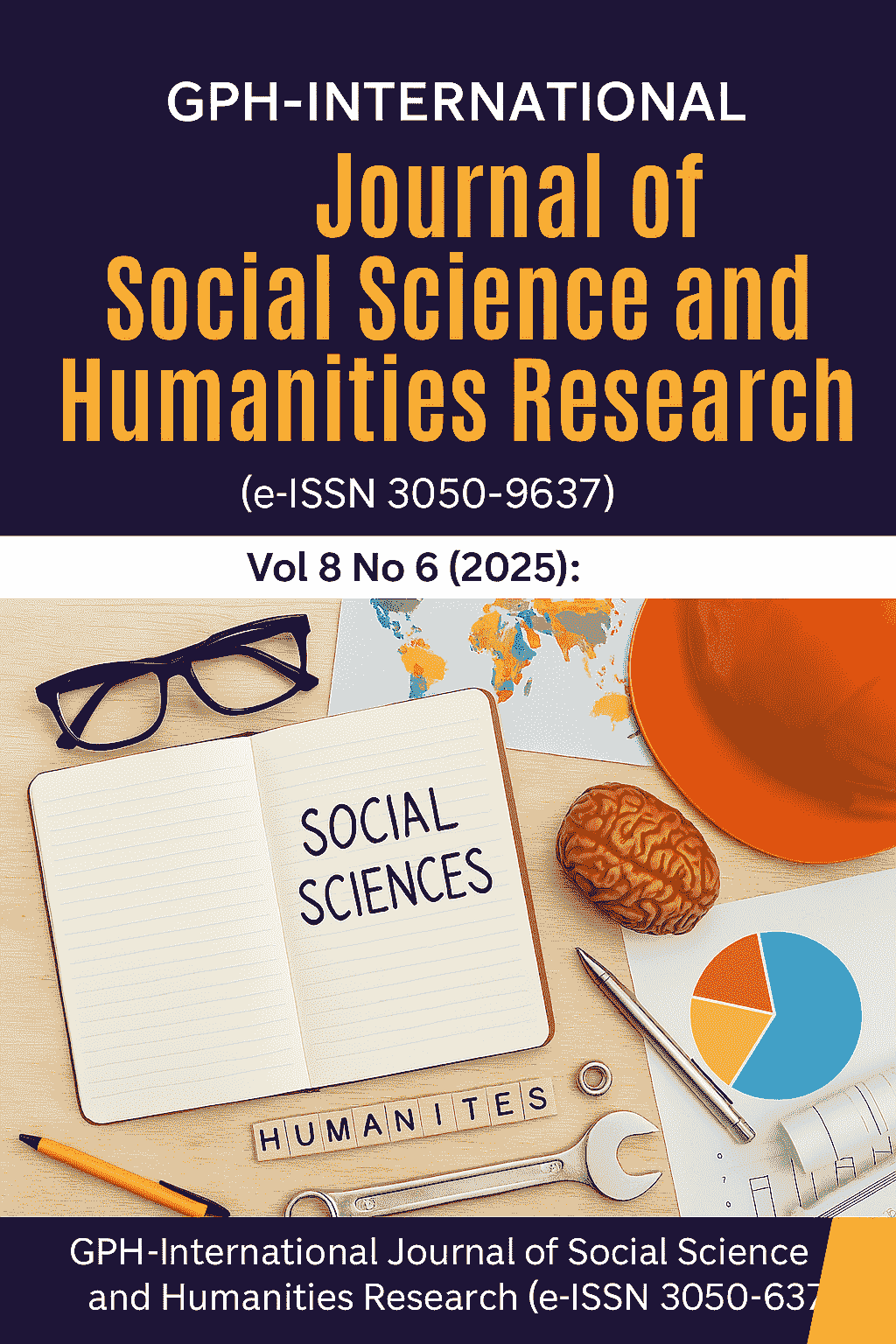LEADERSHIP STYLES AND EMPLOYEE PRODUCTIVITY IN THE UNIVERSITY OF PORT HARCOURT, NIGERIA
Abstract
This study examined the relationship between leadership styles and employee productivity in the University of Port Harcourt, Nigeria. Specifically, it focused on how transformational and transactional leadership styles influence two key indicators of employee productivity: service timeliness and service quality. A cross-sectional survey design was employed, with 196 valid responses collected from non-academic staff across various administrative units. The data was analyzed using Partial Least Squares Structural Equation Modeling (PLS-SEM) via SmartPLS 4.0. Findings revealed that both leadership styles had significant positive effects on employee productivity dimensions, with transformational leadership demonstrating stronger effects. The study concludes that effective leadership is critical for enhancing service performance in tertiary institutions and recommends targeted leadership development programs that emphasize both transformational and transactional elements to achieve a balanced improvement in timeliness and quality of service.
Downloads
References
Adeniran, B. J., Etim, E., & Oluwole, T. (2023). Leadership styles and performance outcomes in Nigerian tertiary institutions. International Journal of Educational Management, 37(3), 298–312. https://doi.org/10.1108/IJEM-09-2022-0378
Armstrong, M., & Taylor, S. (2020). Armstrong’s Handbook of Human Resource Management Practice (15th ed.). Kogan Page.
Avolio, B. J., & Bass, B. M. (2004). Multifactor Leadership Questionnaire Manual. Mind Garden.
Bass, B. M., & Avolio, B. J. (1994). Improving organizational effectiveness through transformational leadership. Sage Publications.
Bass, B. M., & Riggio, R. E. (2006). Transformational Leadership (2nd ed.). Psychology Press.
Bass, B. M., & Riggio, R. E. (2006). Transformational Leadership. Psychology Press.
Hair, J. F., Risher, J. J., Sarstedt, M., & Ringle, C. M. (2022). Partial least squares structural equation modeling (PLS-SEM): Using SmartPLS 4.0 for business research. Longman Academic Publishing.
Hassan, Y. M. (2016). The impact of transactional leadership on task performance in Nigerian civil service. African Journal of Management Studies, 10(1), 45–59.
Iwu, C. G., Kapondoro, L., Twum-Darko, M., & Tengeh, R. (2019). Employee job satisfaction and organizational performance: Evidence from higher education institutions in South Africa. Journal of Economic and Management Perspectives, 13(1), 52–67.
Locke, E. A., & Latham, G. P. (1990). A theory of goal setting and task performance. Prentice Hall.
Ng, A. (2020). Transformational leadership and service responsiveness in public institutions. Journal of Public Administration Research, 9(3), 113–130.
Ng, H. S. (2020). Transformational leadership and organizational effectiveness in higher education institutions: Evidence from Malaysia. International Journal of Leadership in Education, 23(4), 401–420. https://doi.org/10.1080/13603124.2019.1613565
Ololube, N. P. (2021). Transformational leadership practices and staff performance in Nigerian universities. International Journal of Educational Leadership, 29(1), 101–118.
Olowookere, E. I., Aluko, O. A., & Osibanjo, A. O. (2016). Influence of Leadership Style on Employees' Commitment in Nigeria's Manufacturing Sector. Global Journal of Research in Business & Management, 2(3), 14–26.
Robbins, S. P., & Judge, T. A. (2019). Organizational Behavior (18th ed.). Pearson Education.
Saunders, M., Lewis, P., & Thornhill, A. (2019). Research Methods for Business Students (8th ed.). Pearson Education.
Umar, I., & Idris, S. (2022). Leadership Styles and Employee Performance in Nigerian Higher Institutions. International Journal of Organizational Leadership, 11(1), 127–145.
Yukl, G. (2013). Leadership in Organizations (8th ed.). Pearson
The authors and co-authors warrant that the article is their original work, does not infringe any copyright, and has not been published elsewhere. By submitting the article to GPH-International Journal of Social Science and Humanities Research, the authors agree that the journal has the right to retract or remove the article in case of proven ethical misconduct.














 Firozpur Jhirka, Haryana, India
Firozpur Jhirka, Haryana, India

